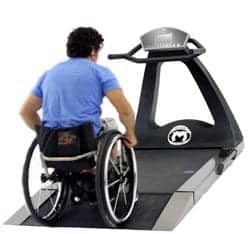A study found that caregivers for people at risk for developing CTE were more likely to use social media for answers than physicians.
Those caring for people who are at an increased risk of developing chronic traumatic encephalopathy (CTE) are more likely to turn to social media for answers than physicians, according to research from UTHealth Houston.
A study led by Summer Ott, PsyD, and Paul E Schulz, MD, which examined CTE-related knowledge and information-seeking behaviors of caregivers of people who are at high risk of the medical condition, was published in Applied Neuropsychology.
CTE is a progressive brain condition that is thought to be caused by repeated blows to the head and repeated episodes of concussion. It is commonly found in athletes who have played contact sports, such as football or boxing.
Ott, first author of the study and associate professor in the Department of Orthopedic Surgery with McGovern Medical School at UTHealth Houston, said she and Schulz, who sees patients at UTHealth Houston Neurosciences, wanted to conduct the study to determine how mistrustful former athletes and their spouses are of the medical community, particularly when the spouse suspects the former athlete may have CTE.
“I’m disappointed when folks come in and all they have to rely on is the internet. They don’t feel like they have someone in their corner, and it can be hard to show caregivers that there may be alternate explanations for their spouse’s behavior, such as chronic post-concussion syndrome, early-onset Alzheimer’s disease, or vascular dementia,” said Ott. “We have to analyze all the characteristics because common CTE symptoms align with so many other diagnoses. Dr Schulz and I are able to get many patients on the right track by treating their symptoms.”
Online survey responses were collected from 64 women, ages 18 to 74, who were married to former college, semiprofessional, or professional football players and were proficient in English. Ranging from 0 to 18, a score was calculated to represent the level of CTE knowledge, and participants were classified into groups based on their spouse’s reported symptoms and diagnosis.
Approximately 87% of participants reported that their spouses have been diagnosed with a football-related concussion. Those participants were significantly more likely to seek out information from a health care provider, a scientific journal or article, and post or comment on social media compared to spouses of symptomatic and undiagnosed, or non-symptomatic groups.
Overall, participants reported that 77% of available online information is probably true, with social media thought to be highly credible. The highest levels of dissatisfaction were reported for league-sponsored websites and physicians and other health care providers.
While the majority of participants sought CTE-related information on traditional or social media and the internet, those caring for people with CTE-like symptoms are more likely to consult social media than caregivers of people without symptoms.
The researchers hope their findings assist healthcare providers and organizations in developing more effective health-related educational programs that will help caregivers make informed decisions regarding care for their spouses with respect to CTE.
“Concerns about loved ones developing CTE are very common and are extremely distressing. It is easy to understand this anguish in light of spouses feeling as though they are living with a ticking time bomb that may develop dementia at any time,” said Schulz, senior author of the study, professor of neurology, and director of the Neurocognitive Disorders Center with McGovern Medical School. “We hope to connect with and provide education to spouses in order to help lessen their anxiety about their loved ones developing CTE. At the same time, we want to be available to diagnose other disorders that can look like CTE, but may have other treatments.”
Photo 67671583 © Mark Adams | Dreamstime.com





